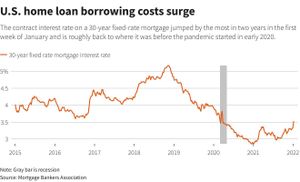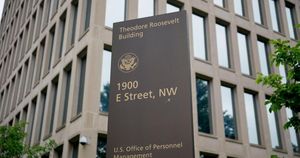Widespread Avian Bird Flu Outbreak Impacts Egg Production
February 2, 2025 – An alarming surge of avian bird flu cases is reshaping the poultry industry globally, inciting fears of potential egg shortages as farmers operate under mounting pressure to respond to the crisis. From the Philippines to the United Kingdom, the outbreak exposes vulnerabilities across egg production systems, prompting urgent calls for action from agricultural leaders.
Secretary Francisco Tiu Laurel Jr. of the Philippines' Department of Agriculture (DA) has raised the alarm over the possibility of egg shortages by April. He noted, “The unfortunate thing is… there might be a shortage of eggs by April,” emphasizing the need for immediate measures to support local egg producers suffering from previous oversupply and price drops.
The situation stems from last year’s significant oversupply which depressed egg prices, forcing many farmers to cull their laying hens to recover financially. This reduction directly impacts the population of egg-laying hens, thereby lowering future supply. “We know there’s a problem and we will act on it,” Tiu Laurel assured reporters.
The ramifications of this crisis extend beyond households relying on eggs for nutrition. Sectors such as bakeries, restaurants, and food manufacturers face the specter of rising prices or reduced production capabilities due to limited egg supplies. Tiu Laurel pointed to the shortcomings of local steps taken to alleviate the crisis, especially when compared to the situation in the United States, where the avian flu outbreak has compelled the culling of millions of egg-laying hens and driven up egg prices significantly.
The DA is working to expedite the importation of new egg-laying chickens and secure FDA approval for avian influenza vaccines, which could facilitate mass inoculation starting as early as March. Currently, the Philippines reports no positive cases of highly pathogenic avian influenza. Yet, there’s palpable anxiety about the potential for outbreaks, as echoed by remarks from Gregorio San Diego of the Philippine Egg Board Association, who cautiously noted, “There are so many cases of bird flu in other countries and I hope it doesn’t reach our country.”
Meanwhile, on the other side of the globe, British farmers are grappling with their own avian flu crisis. Recent reports indicate the confirmation of the disease on 27 farms across England and one in Scotland, prompting the destruction of infected poultry. James Mottershead, head of the National Farmers' Union poultry board, underscored the urgency for the UK government to create vaccination plans against avian influenza, stressing its importance for the long-term stability of the poultry sector.
Gary Ford of the British Free Range Egg Producers Association echoed these sentiments, labeling vaccination as potentially key to preventing the prolific spread of the disease. Currently, vaccinations are disallowed except within zoological environments. To mitigate risk, stringent culling measures have been enforced within proximity of confirmed cases.
Despite the measures taken, the fear of continued outbreaks has intensified. Minister for food security, Daniel Zeichner, recently communicated to parliament the government’s awareness of the need for vaccinations but flagged complex international trade issues as significant hurdles.
Across the Atlantic, U.S. egg producers are facing severe challenges. With 66 of the 68 total human cases attributed to avian flu reported since March, including the first human death directly linked to the virus, the stakes are higher than ever. Greg Herbruck, CEO of Herbruck's Poultry Ranch—one of the largest egg producers—revealed the emotional and financial toll of dealing with this infectious ailment. “The mental toll on our team… is just, I mean, you can't even begin to describe it,” he shared, recounting the drastic actions necessitated by rapid infection rates.
The relentless nature of the outbreak, first seen three years ago, continues to devastate egg farms, triggering calls for more effective tools and strategies. Egg producers and infectious disease experts are advocating for vaccinations as part of broader preventative measures against this persistent threat, with the former U.S. Department of Agriculture (USDA) veterinarian, John Clifford, warning of potential trade impacts due to vaccine use.
“If we vaccinate, we not only lose $6 billion potentially in exports,” he cautioned, but emphasized the dire need for intervention as bird flu spreads to previously unaffected mammals, auguring potential increases in human infections.
Emily Metz from the American Egg Board argued, “We're desperate, and we need every possible tool...we're fighting this virus with at least one, if not two, arms tied behind our back.” Vaccination promises to inject hope and urgency back to the industry, with broader discussions aimed at reducing risk and efficiently battling this persistent pathogen.
This outbreak of avian flu reflects the complex interplay of health, agriculture, and economic stability, presenting challenges for farmers and policymakers alike. Amidst the rising fear and uncertainty, the industry must adapt and innovate to stave off future crises, ensuring the sustainable production of eggs remains viable for millions worldwide.



